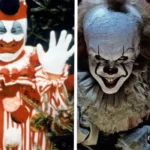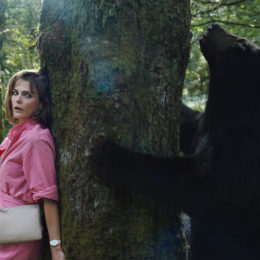DEATH RACE 2000. Science fiction about death and cruelty
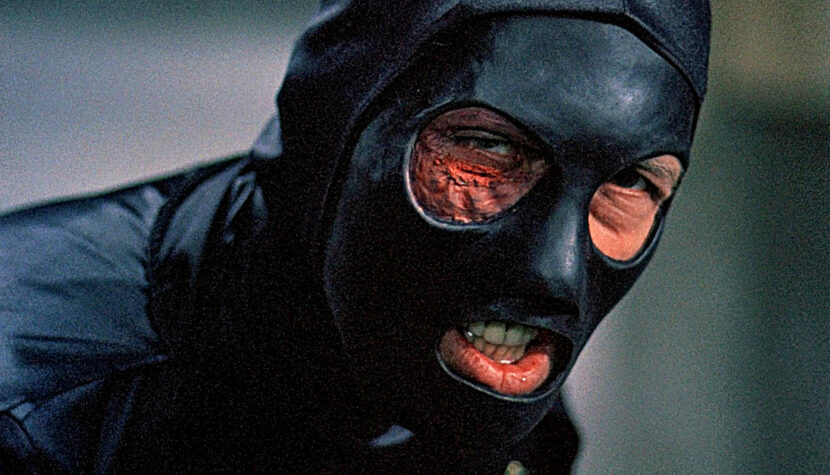
The 1970s in science fiction cinema was a period of aesthetic experimentation, which led to the inevitable eclecticism, and sometimes to oneirism, which confuses today’s viewers. Styles and genres were mixed, new forms of using special effects were discovered in constructing an image that had previously been imaginable only in one’s mind. This eclecticism often resulted in peculiar monsters, which could only be saved by the viewers’ sentiment, their adoration of everything that is old, underdeveloped and even funny in cinema. Death Race 2000 is just that – it is nearly 50 years old, combines different styles without thinking, it is full of inaccuracies, and the actors appearing in it cannot act. However, in terms of plot, it is so unique and skillfully combines science fiction with comedy that it is impossible not to love this film.
Would it be possible today to organize a Euthanasia Day in a geriatrics ward in some blockbuster for hundreds of millions of dollars, where old people in wheelchairs are placed in the middle of the road and then run over by a speeding car? And quite seriously. Each is worth 100 points. Running over an old man on foot is valued at the highest in this crazy race. Or are such twisted tricks used today, such as taking off the mask by David Carradine (Frankenstein), after which most viewers will feel like naives who think in terms of film clichés? Is it free to show an audience of Nazis, communists and democrats on the screen, who nonchalantly fight each other, but in the end each of them is represented in the race because they have the right to do so? It’s about the lack of an ideological spin in the plot, served in a comedic way, extremely amoral and with the iconic young Sylvester Stallone in one of the main roles. It is an undoubted gem of production, encouraging fans to hold on to the end of this peculiar B-grade sci-fi show.
The film was directed by the little recognizable Paul Bartel, mainly an actor known for his further plans in rather cheap and guilty pleasure cinema, but also a director of similar production quality. The cast was chosen to want as little money as possible, and the special effects rely on the use of styrofoam, spray paint, painted backgrounds, and speeding up the shoot as the cars perform more complex maneuvers, a bit like in movies from the turn of the century, but it’s the 70s after all. What’s more, it would make some sense if the action was a bit like the one from Mad Max – that is, the race would go on constantly, marked by more dead bodies, collecting points for them and even finishing the organizers and fighting the mysterious resistance movement. But that’s not the case in Death Race. The creators were tempted to break the action with criminal and even moral inserts. Women-pilots romance with their drivers, and they use their charms, plotting more and more plans to win the opponent’s pilot. Generally, moral relations in the film are very complicated. Lovers of beautiful women will certainly be satisfied with the often shown female breasts, while Stallone still beats very poorly. As you can see, the director could not quite decide on a uniform character of his film, so he allowed a lot of multi-genre inserts in the script, with the intention of creating a sociological SF pastiche.
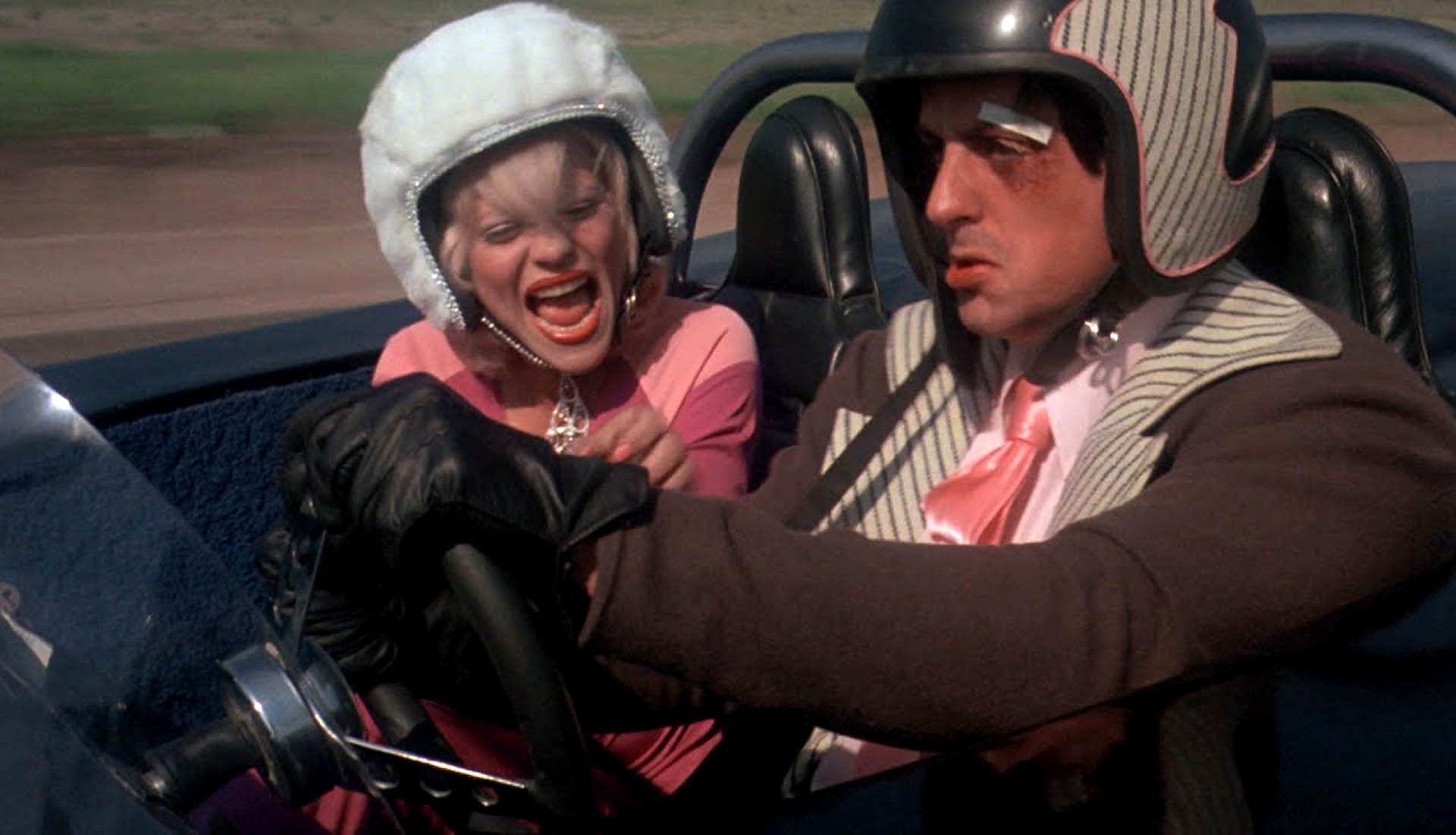
Related:
The world does not want to be saved, but it gives you a chance to save yourself – deep words are rarely used in this type of film, and this sentence is just an example of how eclectic cinema we are dealing with. I wish someone would once have the courage to make a remake of this film today, in the 20s of the 21st century, and with the right budget. One could go in the same direction as the creators went when re-shooting the story of Judge Dredd with Karl Urban, i.e. suck the plot out of all the moral, romantic and pompous insertions, and combine the sensational-crime plot with the action of the race. The very plot of filming the race on TV is curiously surreal and pastiche, so it could be left alone. It would only reinforce the controversial nature of such an amoral idea for a race. However, which studio would decide to shoot this extremely naughty story and risk its distribution in cinemas? Probably the world of film would once again be accused of spoiling the youth, and today additionally, for example, of glorifying Nazism or other total ideologies.
On the other hand, it seems that nowadays we should have a much greater distance from cinematic fiction, even if it unjustifiably shows the joy of the death of innocent people without a clear educational context. Exactly, does Death Race 2000 have any non-film, philosophical, ethical, sociological value? Some viewers consider it a cult film, and therefore obviously valuable.
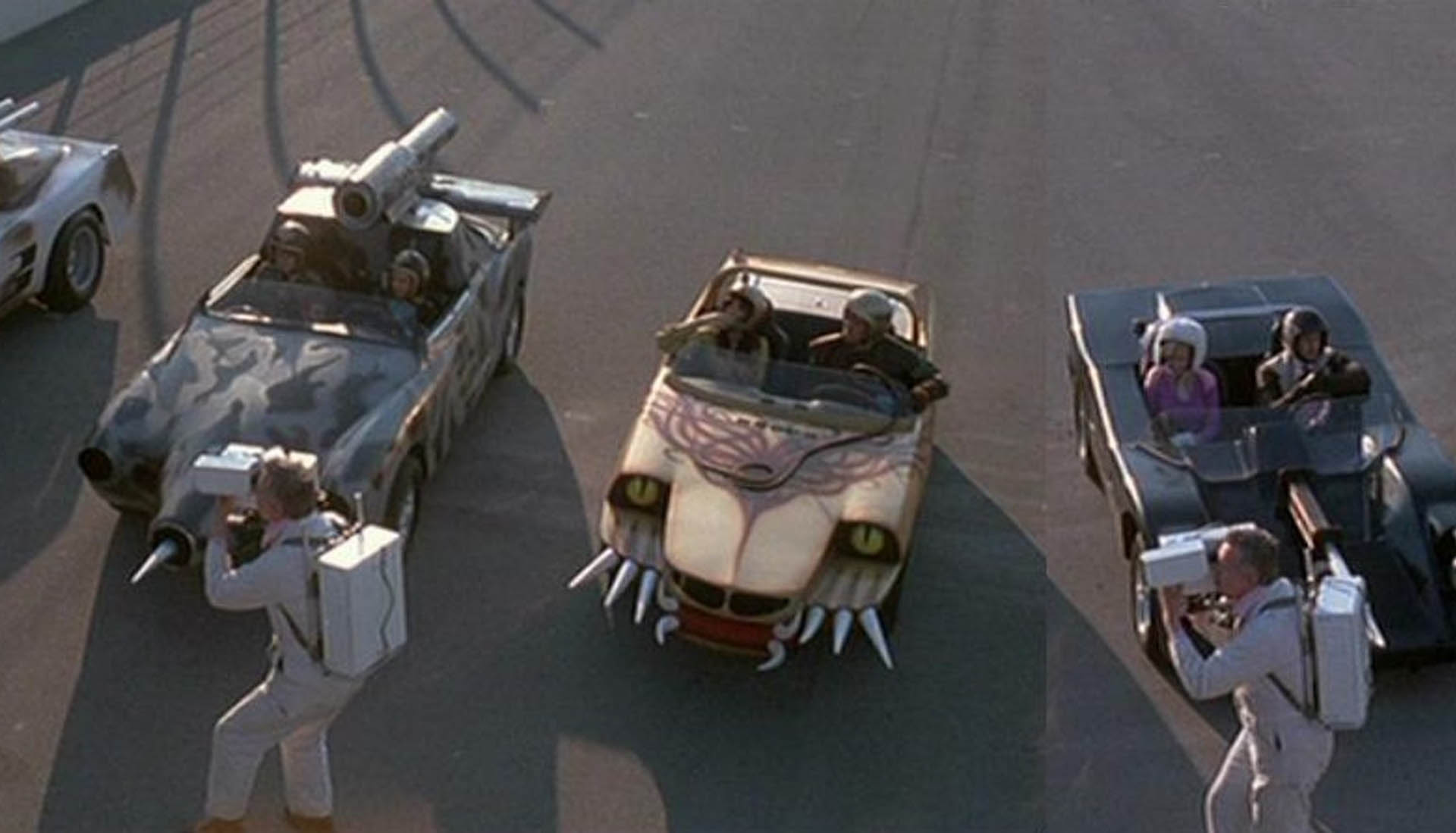
In the kitsch dripping with Death Race, there is a mockery of the media’s dependence on violence, building a positive image, advertising and the audience on it, which then transfers its lowest instincts to the community and the state itself. And in the film it is in disintegration – it is a degenerate media entity that is unable to think for itself – all it needs is circuses and bread. Then it will be possible to freely control it and use it politically. This timeless mechanism of governing through the mass media and the appropriate dosing of pleasure to appropriate social groups is an accurate diagnosis, appropriate for our times. I believe that this is why a large part of the audience considered the film to be a timeless image of the degradation of the society of the future, which in some sense has already reached this level of moral embarrassment in some layers. We fear nudity more than mindless violence – the main character of Death Race 2000 – Frankenstein could say. It was he who embodied the national features of Americans, and they themselves did not know what cognitive dissonance they functioned in. The intrigue in the film is really intricately planned. It’s a pity that trashy music spoils the whole atmosphere of winning good over evil. Only if it is actually a victory, and not a repeat of what is inexorably about to happen, i.e. after the revolution, when good heroes defeated evil, started building a community themselves, faced the problem of how to deal with the crime so that it would never happen again. And so they began a process of rising vengeance, dos and don’ts, punishing and exterminating those who think differently, and finally laid the foundations for another revolution. Otherwise, there wouldn’t be blood on Frankenstein’s beautiful yellow car again. I’m referring to the end of the movie here.
Death Run 2000 is a clever film treatise on violence, albeit an extremely visually unpalatable one. So I recommend it to all those who love this kind of science fiction cinema that escapes the uniform categories and templates that today the creators so diligently put on their blockbuster gems to earn as much money as possible.



